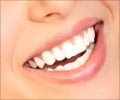Poor oral health too could haunt the mentally ill. They are over three times more likely to lose their teeth than the general population, University of Queensland researchers have found.

Researchers analysed 14 studies into the oral health of people with severe mental illness published over the past 20 years.
All the psychiatric patients in the studies (2784) had been diagnosed with severe mental illness, such as schizophrenia, dementia, bipolar disorder or other affective disorders.
The review found that the psychiatric patients were 3.4 times more likely to have lost all their teeth.
They were also 6.2 times more likely to have decayed, filled or missing teeth.
Lead researcher Professor Steve Kisely said a combination of factors was to blame.
Advertisement
"Some medications such as antidepressants and mood stabilisers can also reduce the flow of saliva and cause dry mouth (xerostomia), which increases plaque formation.
Advertisement
“Our analysis shows that, although the oral health of the general population has improved in much of the world, psychiatric patients remain at a disadvantage.
“This mirrors findings in other areas such as cardiovascular disease, where the health of the general population has improved – but not that of people with severe mental illness.”
Professor Kisely said oral health should be part of the standard assessment for all patients with severe mental illness.
“When patients are admitted to hospital, their care plans should include a basic assessment of oral hygiene – including factors known to cause oral ill-health such as medication, tobacco and drug use.
“Patients with mental illness who are treated in the community should be given advice on diet, smoking and brushing technique.
“We believe policy-makers should also consider providing free, accessible dental care for people with severe mental illness,” he said.
Source-Medindia












